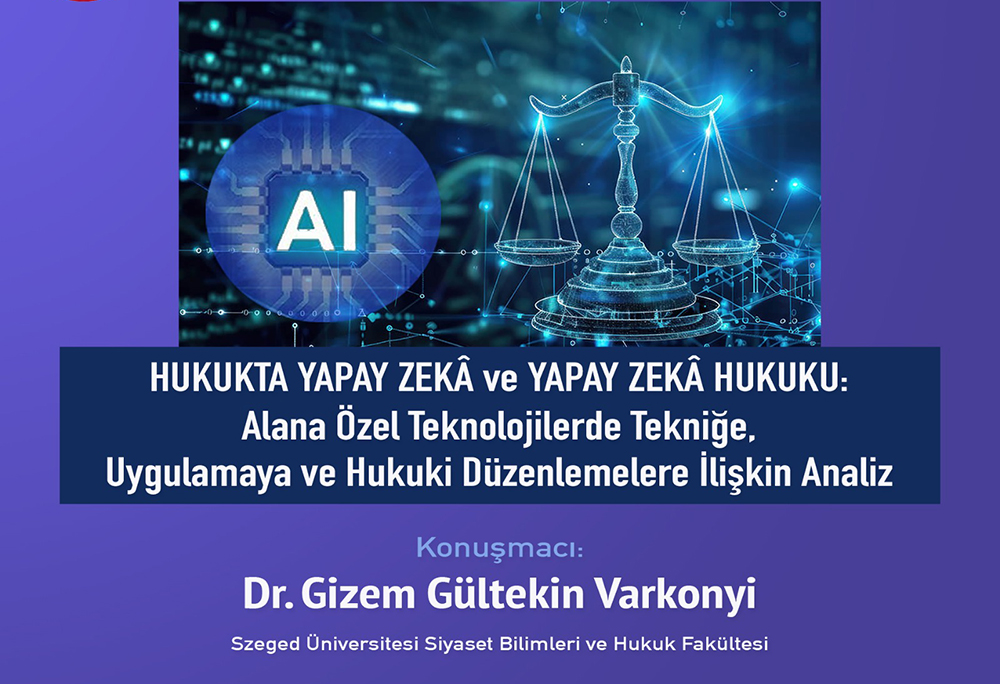“Artificial Intelligence and Artificial Intelligence in Law” was the first event of 2025 that was organized by Information Law Commission of Istanbul Bar Association and attracted great interest among the members of Istanbul Bar Association. Dr. Gizem Gültekin Varkonyi from Szeged University was the speaker of the event. She addressed the advantages and risks posed by artificial intelligence and also the European Union’s Artificial Intelligence Act in her speech.
Dr. Varkonyi introduced her topic by explaining that artificial intelligence was utilized in predictive legal technologies and data classification. As she elaborated the use of artificial intelligence for predictive purposes in law is the use of algorithms by lawyers to calculate the probability of a legal dispute to result in a favourable outcome. Accordingly, a dispute will be analyzed by the algorithm and the probability of winning will be indicated as a percentage. In this respect, it differs from preventive law enforcement. Data classification refers to the categorization of words according to their semantic meaning in natural language processing. It is mostly used in administrative activities such as the classification of documents.
Dr. Varkonyi emphasized that artificial intelligence was a human product therefore it could not be isolated from mankind’s prejudices, biases and discriminatory tendencies. However, such risk could be minimalized through legal regulations. In this context, she mentioned to European Union’s Artificial Intelligence Act as an example and also explained that these regulations have a restrictive effect on the use and development of artificial intelligence in Europe.
Afterwards, Dr. Varkony explained that the use of artificial intelligence in the judicial system was more common in countries outside Europe and gave examples from these countries. She stated that both United States of America and the United Kingdom had a rich literature on this subject and there were concepts to apply artificial intelligence in judicial system in both countries. Then, she noted that the People’s Republic of China was another leading country when it comes to the use of artificial intelligence in the judicial system, effectively utilizing artificial intelligence especially in interpersonal legal disputes such as uncontested divorce proceedings and digitalizing their judicial system.
Dr. Varkonyi also mentioned that algorithms were influenced by the cultures of those who developed them. In this context, she noted that every artificial intelligence system bears the cultural patterns of those who developed it and also functions with the logic of the language in which it was developed. In this context, she gave examples that none of the existing systems were completely impartial. Issues regarding ownership of these algorithms was also indirectly discussed. In this context, Dr. Varkonyi pointed out that the public institutions’ budgets were insufficient to develop artificial intelligence systems, thus these systems were outsourced and this was causing dependency on private companies, even for large organizations such as Europol.
Consequently, we are still far from the days in which robots will be seen on the judge’s bench. However, today artificial intelligence technologies are being used in law and law enforcement. Therefore, artificial intelligence has already been incorporated into the judicial system. We believe that in this transformation, the rights of individuals and the public nature of the judiciary must be guaranteed.
Att. Celil Aktaş, LL.M.









